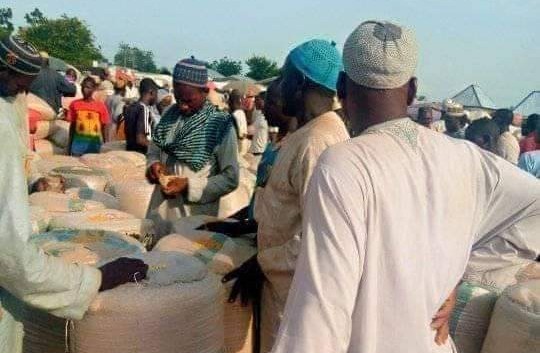The Federal Government’s recent announcement of a plan to reduce food prices within six months has ignited a significant backlash from Nigerians on social media.
On Wednesday, the Minister of Agriculture and Food Security, Abubakar Kyari, outlined a comprehensive strategy intended to significantly lower food prices within 180 days. Key measures include a 150-day duty-free import window for certain food commodities, along with the suspension of duties, tariffs, and taxes on imports through land and sea borders.
Kyari detailed the following measures to be implemented:
The Federal Government will open a 150-day duty-free import window for food commodities, suspending duties, tariffs, and taxes for importing certain food commodities such as maize, husked brown rice, wheat, and cowpeas. Imported food commodities will adhere to a Recommended Retail Price (RRP) with strict quality standards to ensure safety and quality.
The Federal Government will import 250,000 metric tons of wheat and 250,000 metric tons of maize. These semi-processed commodities will be distributed to small-scale processors and millers nationwide.
The government will engage relevant stakeholders to set a Guaranteed Minimum Price (GMP) and purchase surplus food commodities to replenish the National Strategic Food Reserve.
The government will ramp up production for the 2024/2025 farming cycle by continuing support for smallholder farmers during the current wet season through existing government initiatives, strengthening and accelerating dry season farming across the country, and promoting aggressive agricultural mechanization to reduce labor, lower production costs, and boost productivity.
Nigerians have taken to social media to express a range of opinions and concerns about these measures. Some of the reactions include:
Holyman: “Out of everything you stated, not once did you mention the major problems facing food prices: herders/farmer clashes and insecurity. No matter what you do, if these two problems still exist, there will continue to be food scarcity.”
Alimoh: “Importation of such foodstuff should be strictly monitored to avoid compromising quality. Security of our borders is crucial.”
Taiwo Ajuwon: “Wrong policies at the wrong time. It’s difficult to do business in Nigeria. Farmers have spent a lot of money on farm inputs, and a few weeks before the harvest, you want to import to crash the price, turning them into debtors. Focus on crops we cannot produce in Nigeria.”
Mustapha Selah: “Good policy at the wrong time. Anyone advising you to allow importation of foodstuffs is either wicked or doesn’t know what they are doing. Subsidize agricultural inputs and encourage local farmers; that’s the only way we can overcome inflation and hardship.”
His Royal_Highness: “Importing foods like maize at this time means we are regressing. Leaders should focus on improving security and supporting innovation and technology. We need to build quality education.”
Oumar: “Instead of allowing the importation of food, why not lift taxes and duties on farm machinery to encourage those willing to buy and lease these machines to farmers at low prices? States should also buy large farm machinery to support small and large-scale farmers.”
The debate continues as Nigerians weigh in on the proposed measures and their potential impact on the country’s food security and economy.
